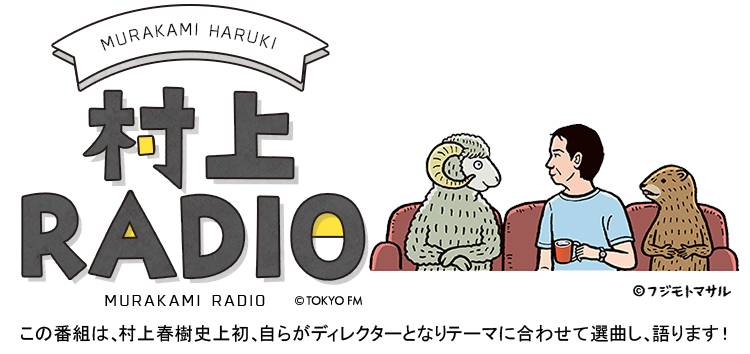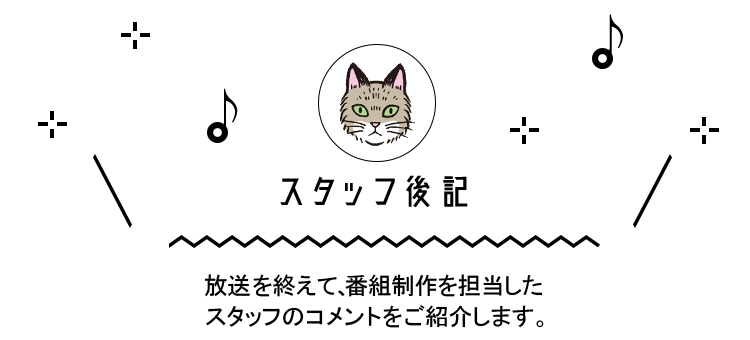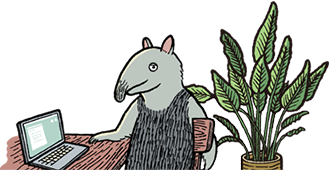
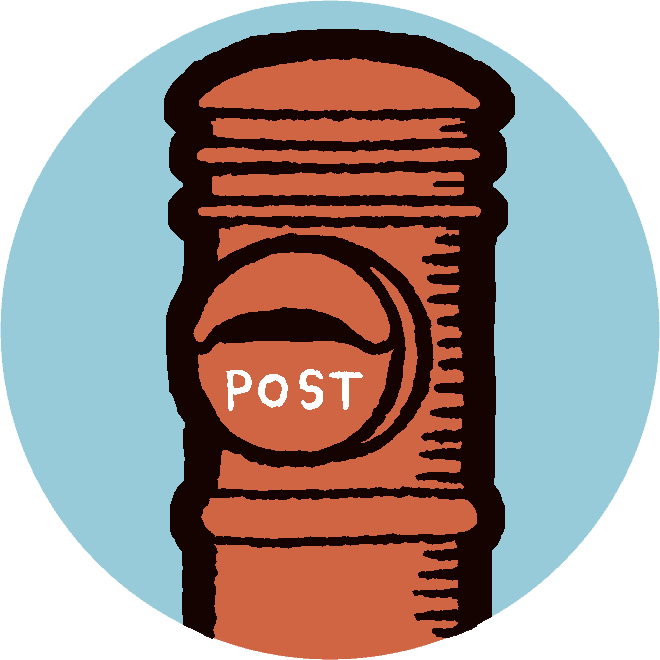

-
こんばんは。村上春樹です。村上RADIO。
今日は「戦争をやめさせるための音楽」というテーマで、特別番組をお送りしたいと思います。音楽に戦争をやめさせるだけの力があるのか?
正直言って、残念ながら音楽にはそういう力はないと思います。でも聴く人に「戦争をやめさせなくちゃならない」という気持ちを起こさせる力はあります。今日は八曲か九曲の音楽をかけるつもりですが、それだけを聴き終えたとき、おそらくあなたは前よりも強く「戦争をやめさせなくちゃいけない」という気持ちになっているはずです。おそらく......。
そのようなわけで、今日はうちにあるCDやレコードの中から、僕なりに「戦争をやめさせるための音楽」というテーマに相応(ふさわ)しいものを選んできました。ダイレクトな反戦歌も多いけれど、正確な意味では「反戦歌」と言えないものもあります。しかし人の命や愛や尊厳を大切に護らなくてはならない、という内容の歌だって、広い意味での「反戦歌」ですよね。僕はそう思います。
今日は歌詞が大切な要素になります。できるだけ精(くわ)しく紹介したいと思います。じっくり聴いてください。 -
Murakami Radio
Music To Put An End To War
This is Haruki Murakami. Welcome to Murakami Radio.
I have a special show for you today: “Music To Put An End To War.” Does music have the power to stop war? Sadly, the answer’s no. But it can make listeners believe that war’s something we need to stop. I’ll play eight or nine songs tonight, and by the end of the show, I have a feeling that you’ll be that much more inspired to bring an end to war. Time will tell...
So, I’ve gone through the records and CDs that I have at home, picking out the songs that, in my mind, best fit our theme. Some of them are straightforward anti-war songs, but there are a few tracks that aren’t — at least not in any strict sense. Then again, as they deal with the importance of human life, love, and dignity, maybe they can be considered anti-war songs in some broader sense. Well, that’s how I see it.
Lyrics are going to play a big part in tonight’s show, so be sure to keep an open ear.


- NEVER DIE YOUNG
JAMES TAYLOR
HIGHER GROUND HURRICANE RELIEF CONCERT
BLUE NOTE RECORDS -
ジェームズ・テイラーの「Never Die Young(ネヴァー・ダイ・ヤング)」。これは正確には反戦歌ではありません。歌詞はかなり象徴的ですが、犯罪やドラッグでむなしく命を落としていく都会の若者たちに向かって、「何があっても無駄に死んでいくんじゃないよ」と呼びかけ、大人たちに向かって「彼らをしっかり支えてあげなくては」と訴えかける歌です。でも戦場に駆り出される若者たちの姿に重なるところは、もちろんあります。年寄りが勝手に始めた戦争で、若い人たちが命を落としていく。昔からずっと続いていることですが、本当に悲しむべきことですよね。
今日はライブ盤で聴いてください。ジェームズ・テイラーが、ニューオーリンズの水害支援ベネフィット・コンサートで、ギター1本、切々と歌い上げます。2005年の録音。これ、とても素敵な歌です。 -
James Taylor’s “Never Die Young.” This one isn’t really an anti-war song. The lyrics are fairly abstract, but they’re aimed at young people in the city who are losing their lives to drugs and crime. “Don’t die for no reason,” the singer pleads. And, to the adults, “Hold them up... Never do let them fall.” Of course, there’s a clear connection here to young men and women being sent to war. In a war started by an older generation, it’s the younger generation that gives up their lives. That’s the way it’s been for a long time, and it’s truly heartbreaking.
We’re listening to a live version of this one. This is James Taylor, performing with nothing but his guitar, singing his heart out for New Orleans at the Hurricane Relief Benefit Concert in 2005.
This really is a great song.


- LAST NIGHT I HAD THE STRANGEST DREAM
THE WEAVERS
THE WEAVERS AT CARNEGIE HALL (PLUS)
キングレコード -
次は純粋な反戦歌というか、プロテスト・ソングです。1950年にフォーク歌手、エド・マッカーディが作曲したもので、サイモン&ガーファンクルを始め、いろんな歌手が歌っています。今日はフォークソング・グループの草分け、ウィーヴァーズの歌で聴いてください。
“Last Night I Had the Strangest Dream.”
ゆうべ、とっても不思議な夢を見たよ、という歌です。
この曲がつくられた1950年と言えば、朝鮮戦争が始まり、東西冷戦が本格化した年です。核戦争の脅威も高まっていました。それだけにこの曲は切実な意味を持っていました。ウィーヴァーズ、ピート・シーガーがリードをとっています。1955年クリスマス・イブのニューヨークのカーネギーホールでのライブです。
ウィーヴァーズは反戦歌をたくさん歌っていたので、アメリカ政府に目をつけられて、活動を厳しく制限されていました。ピート・シーガーは裁判にかけられ、彼らのレコードはラジオで放送禁止みたいなことになっていたんです。でもそんな中で、彼らはこのカーネギーホール公演を敢行して、見事に成功させます。満場の聴衆は彼らに熱烈な拍手を送ります。これ、なかなか感動的なコンサートです。 -
Next up, we have a pure anti-war song — a protest song. Folk singer Ed McCurdy wrote this one in 1950, and it’s been performed by Simon & Garfunkel, among many others. Today, we’re going to listen to a version from a trailblazing folk group: The Weavers.
The year this song was written, the Korean War started and the Cold War turned hot. The threat of nuclear war was looming large. In the face of all this, McCurdy’s song had a meaning that was hard to ignore. The Weavers, led by Pete Seeger. This is a live recording from Carnegie Hall in New York — Christmas Eve, 1955.
The Weavers sang quite a few anti-war songs, and the American government kept a close eye on them, which made it hard for the band to keep going. Seeger was indicted and blacklisted, and The Weavers’ records were banned from being played over the radio. Still, in the middle of it all, they dared to put on a concert at Carnegie Hall, and it was a spectacular success. They really brought the house down. What a touching performance.


- WHAT'S HAPPENING BROTHER
THE DIRTY DOZEN BRASS BAND
WHAT'S GOING ON
SHOUT FACTORY -
ダーティー・ダズン・ブラス・バンドがベティ・ラヴェットを歌手に迎えて、マーヴィン・ゲイの“What's Happening Brother”を演奏します。ヴェトナムの戦場から帰ってきたばかりの黒人兵の、戸惑いに満ちたつぶやきです。マーヴィン・ゲイは弟に経験談を聞いて、それをもとにこの曲を書いたということです。
1971年に発表されましたが、このあたりはヴェトナム戦争がいちばん激しかった時期です。そしてその戦争ではとくに黒人の死傷者とても多かったんです。社会的不公平っていうか。こんな歌詞です。 -
The Dirty Dozen Brass Band, with Bettye LaVette on vocals, performing Marvin Gaye’s “What’s Happening Brother.” Gaye’s lyrics are filled with the bewilderment of black soldiers now home from the war. This song was inspired by Gaye’s own brother, who served in Vietnam.
This track was released in 1971, when the Vietnam War was at its worst. That war claimed many lives, especially black lives. Talk about social inequality. The lyrics go like this.


- WAR
BRUCE SPRINGSTEEN & THE E STREET BAND
THE "LIVE" 1975-1985
CBS/SONY -
エドウィン・スターのヒットさせた痛切な反戦ソング「WAR(黒い戦争)」を、ブルース・スプリングスティーンがライブで歌います。1985年、ロサンゼルス・メモリアル・コロシアムでの録音です。
凄い歌詞ですよね。危うくヴェトナムに送られるところだったスプリングスティーンは、この曲を歌い始める前に、実感を込めて若い聴衆に語りかけます。彼のニュージャージー時代の友だちの多くは徴兵されて、ヴェトナムで命を落としています。そのことを彼は深く悔やんでいます。
「おれたちが育った1960年代、毎晩のようにテレビで戦争を見て育った。友人たちも戦争に巻き込まれた……で、ここにいる若い人たちみんなに、この歌を聴いてもらいたいんだ。とりわけ十代の人たちにね。おれのたくさんの友だち、よく覚えているよ。みんなまだ17か18で、その頃おれたちはまだ、世の中の多くのことがよくわかっていなかった。そういうのを学ぶ機会すら持てなかったんだ。で、次の戦争があったら、彼らはきみたちのことをきっと見守っているだろうし、そのとききみたちは、自分がほんとに何をやりたいのか、それをしっかり知っておかなくちゃならない。なぜなら1985年の今、指導者とかそういう連中に黙って従っていたら、きみたち死んじゃうぜ。おれが今話しているのは (What I'm talking about is)……」
そして“WAR”という曲の冒頭になります」
(*註 このライブが行われた1985年は、ロナルド・レーガンが大統領の時代である) -
“War.” The anti-war song that Edwin Starr turned into a hit — as performed by Bruce Springsteen. This recording is from the LA Coliseum in 1985.
These are some lyrics. Springsteen was almost drafted himself, but here he speaks to his young fans before breaking into the song. Many of Springsteen’s friends from his days in New Jersey were sent to Vietnam and lost their lives. On this track, you can hear his deep bitterness.
“When we grew up in the sixties, we grew up with war on TV every night — a war that your friends were involved in... I wanna do this song tonight for all the young people out there. If you’re in your teens. ’Cause I remember a lot of my friends, when we were seventeen or eighteen, we didn’t have much of a chance to think about how we felt about a lot of things, and the next time they’re gonna be looking at you, and you’re gonna need a lot of information to know what you’re gonna wanna do. Because in nineteen eighty five, blind faith in your leaders, or in anything, will get you killed, ’cause what I’m talkin’ about here is [war].”


- LIVING ON THE FRONTLINE
EDDY GRANT
100% REGGAE HITS
TELSTAR - レゲエのエディ・グラントが“Living On The Front Line”を歌います。最前線に生きている。この最前線というのは、戦争の最前線であると同時に、荒廃した社会の瀬戸際的な場所でもあります。エディ・グラントはここでは主に、アフリカで部族同士で殺し合っている戦争をやめさせようと、叫び声を上げているのですけど、その訴えの切実さはこの世界におけるどの戦争にも通じているはずです。
- Reggae artist Eddy Grant singing “Living on the Frontline.” This frontline has to do with war, of course, but it’s also about a society on the brink of destruction. Eddy Grant is mostly raising his voice here to get tribes in Africa to stop killing each other, but his heartfelt lyrics could really apply to any war in the world.


- BLOWIN' IN THE WIND
STEVIE WONDER
THE 30TH ANNIVERSARY CONCERT CELEBRATION
COLUMBIA -
スティーヴィー・ワンダーがボブ・ディランの「デビュー30周年記念コンサート」で、この“Blowin' In The Wind”を歌います。「風に吹かれて」。
1992年のことです。この歌詞はきっとみなさんご存じですよね。でもいちおう読み上げます。
スティーヴィー・ワンダーは15歳のときにこの曲をカバーしています。彼は曲の前の語りで、60年代当時は公民権運動とかヴェトナム戦争があったけど、それからも世界のトラブルは途絶えることがなく、結局この曲はどの時代にも輝きを失わなかった、というようなことを述べています。そしてディランの前で、この曲を熱っぽく歌い上げます。バック・バンドはブッカー・T&ザ・MG'sという豪華版、ピアノを弾いているのはスティーヴィー・ワンダー自身です。 -
Stevie Wonder, performing Bob Dylan’s “Blowin’ in the Wind” at Dylan’s 30th Anniversary Concert Celebration. This was in 1992. I’m sure you all already know the words to this one. Anyway, they go like this.
Stevie Wonder first covered this song when he was fifteen. Before he starts singing at the concert, he talks about how, in the sixties, there was the civil rights movement and the war in Vietnam, but the world’s troubles haven’t ended since. Unfortunately, Stevie Wonder says, “Blowin’ in the Wind” is still relevant today. Then he goes into the song, giving a passionate performance in front of Bob Dylan. That’s Stevie Wonder on piano, with the incomparable Booker T. & the M.G.’s backing him up.
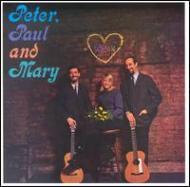

- CRUEL WAR
PETER, PAUL AND MARY
PETER, PAUL AND MARY
WARNER BROS. RECORDS -
ピーター、ポール&メアリーが「悲惨な戦争」“Cruel War”を歌います。これ、日本でのライブがとてもいいので、それをかけようと思ったんですけど、どうしてもそのCDが見つからなくて、オリジナルのLPでかけます。古いものなので、ちょっとぷちっと入りますが、例によって気にしないでください。人に歴史があるように、レコードにも古傷があります。でもメアリー・トラヴァースの声、何度聴いても素敵ですね。
- Peter, Paul and Mary singing “Cruel War.” The live version of this one, performed in Japan, is really wonderful, and I wanted to play it for you tonight, but I can’t find the CD. So we’ll be listening to the original LP instead. This is an old one, so please pardon the crackles. Just like people have their histories, records have their old scars. Anyway, Mary Travers’ voice is never anything less than incredible, no matter how many times you listen to it.


- THE UNKNOWN SOLDIER
THE DOORS
WAITING FOR THE SUN
ELEKTRA -
ドアーズの“The Unknown Soldier”「名もなき兵士」をかけます。『Waiting for the Sun』というアルバムに入っていた曲です。僕の学生時代、よくラジオでかかっていました。ヴェトナム戦争真っ盛りの頃です。ドアーズ、とんがったバンドでした。残念ながら、とんがりすぎて自滅してしまいますけど。この曲もいかにも“闘う詩人”ジム・モリソンらしい歌詞です。鮮やかなイメージが象徴的に、断片的に、並列的に繰り出されます。
- Next, we have “The Unknown Soldier” by The Doors. This track comes from the album Waiting For The Sun. I remember this one always playing on the radio back in my school days, at the height of the Vietnam War. The Doors were a band that cut like a knife. Unfortunately, they were probably a little too sharp, destroying themselves in the end. The lyrics for this song are exactly what you would expect from the fighting poet Jim Morrison. One striking image delivered after another — fragmentary and symbolic.


- IMAGINE
JACK JOHNSON
INSTANT KARMA: THE AMNESTY INTERNATIONAL CAMPAIGN TO SAVE DARFUR
WARNER BROS. RECORDS -
ビートルズ解散後にジョン・レノンがつくった代表的な曲「イマジン」を聞いてください。発表されたのは1971年です。今日はジャック・ジョンソンが歌います。この歌詞はとても有名なので、みなさんはたぶんご存じだと思うんですけど、いちおうご紹介しておきます。
こうして読み上げると、ずいぶん楽観的な歌詞だなと思いますけど、でも実際に歌われるのを聴いていると、やはりじんと来ます。1971年、理想がまだ生き残っていたというか、未来を信じることができた時代だったんですね。理想を信じたシニカルなドリーマー、ジョン・レノン。彼の死によって、世界の情景が大きく変わってしまいました。とても残念なことですが。
-
Now I’m going to put on “Imagine,” the quintessential post-Beatles John Lennon song. This one came out in 1971. Tonight, we’re going to listen to Jack Johnson’s version. The lyrics are very well known, and I imagine you already know them.
Reading these lyrics, they can sound pretty optimistic, but they really move you when you hear them in the song. Things were different in 1971 — it was a time when we could still believe in the future, when we still had our ideals. John Lennon, the cynical dreamer who dared to imagine. His death dealt a devastating blow to the world, and it really hasn’t been the same since.


- LOVE AND MERCY
BRIAN WILSON
I JUST WASN'T MADE FOR THESE TIMES
MCA RECORDS - Love And Mercy。ブライアン・ウィルソンがコンサートの最後によくこの曲を歌っていました。一人でピアノを弾きながら、とても静かに歌うんです。まるで自分に語りかけるみたいに。これがけっこう心に沁みます。愛と慈悲の心。
- “Love and Mercy.” A song that Brian Wilson often performs at the end of shows. This one’s just him, on piano, singing very quietly — as if he’s singing to himself. This one always gets me. It’s what we all need tonight.


- AMAZING GRACE
HERBIE MANN
THE EVOLUTION OF MANN: THE HERBIE MANN ANTHOLOGY
RHINO/ATLANTIC - 今日のクロージング音楽はハービー・マンの演奏する“Amazing Grace”。古い賛美歌です。作詞者のジョン・ニュートンは18世紀に奴隷貿易に関わっていた英国人で、後年、自分の関わった数々の残虐な行為を恥じて、改悛(かいしゅん)の心をもってこの曲を書いたと言われています。本当に美しい曲です。フルートはハービー・マン、ピアノとヴォーカルはソウルフルなレス・マッキャンです。
- Our final track is Herbie Mann’s performance of the old Christian hymn “Amazing Grace.” The British hymnist, John Newton, was a slave trader in the eighteenth century, who looked back with shame and regret later in life at the countless cruel acts he had participated in. He then wrote this piece with repentance in his heart. It’s such a beautiful song. The flute is Herbie Mann, and the soulful Les McCann is singing and playing piano.

-
さて、今日の最後の言葉は、マーティン・ルーサー・キング牧師の言葉です。
キング牧師は1968年に暗殺されました。彼は演説の中でこう言っています。
「ヒットラーがドイツでおこなった行為は、すべて合法的だった。そのことを決して忘れてはならない」
僕は思うんですけど、キング牧師はきっとこういうことが言いたかったんでしょうね。
“Never forget that everything Hitler did in Germany was legal.”
「個人の自由を脅かす可能性を持つ法律のもとでは、個人の自由はまず間違いなく、合法的に奪われていくだろう」と。
最近は議会制民主主義があまりうまく機能していないからという理由で、もっと力を中央に集約した「権威主義」みたいなシステムに心を惹(ひ)かれる人が多いようです。でもそれはたしかに効率的かもしれないけど、そのぶん闇の方向に転べば、とても危険な事態がもたらされます。
だからみなさんも十分気をつけてくださいね。ブルース・スプリングスティーンの言葉じゃないけど、指導者にただ黙っておとなしくついていくと、大変なことになりますよ。
それでは今日はこれまで。世界が平和になるといいですね。 -
Well, our last words today belong to Martin Luther King. The Reverend Martin Luther King was assassinated in 1968. In a speech, he once said:
“Never forget that everything Hitler did in Germany was legal.”
I imagine what he was thinking was something along these lines:
“When the law has the potential to threaten individual rights, there can be no doubt that individual rights will first be taken legally.”
It seems that quite a few people have become frustrated by representative democracy recently. It isn’t working, they say. They’re drawn to a system of concentrated power much closer to authoritarianism. While that might seem efficient, it’s important to remember that, if things take a turn in a dark direction, where we end up is truly dangerous.
So please take care, everybody. It’s not exactly what Bruce Springsteen said, but nothing good will come from blindly following our leaders.
Well, that’s our show for today. Here’s hoping for some peace in our world.
- 春樹さんは冒頭「音楽に戦争をやめさせる力はない」と語りだし、「でも、音楽には戦争をやめさせなくちゃいけないという気持ちを起こさせる力はある」と続けます。このわずかな、でも確かな違い。安易に解を求めず、辛抱強く模索することの大切さは、春樹さんの作品にも通じるメッセージだと思いました(構成ヒロコ)
- 「音楽に戦争を止める力はあるのか」、と言われれば、そんな直接的な力はないかもしれませんが、戦争は始めるのも、終えるのも、決めるのは「人間」です。 リーダーたちが「戦争をやめよう」と決めれば、戦争は終わるのです。そういう意味でいえば、音楽を聴いて、みんなが「戦争をやめたくなる」と思えば、その想いはちゃんと届くはず。音楽には人々の心を動かす大きな力があります。ホームページには著作権の関係で、歌詞を全部載せられなかったのですが、ぜひ、今回オンエアされた曲の「歌詞」を調べて、読んで感じて欲しいのです。例えば、ピーター、ポール&メアリの「悲惨な戦争(Cruel War)」には、好きな男性が戦争に行くことになり、自分もついて行っていいか、という男女の想いを歌っています。『あなたと一緒に戦争に行かせてくれない? ノー・マイ・ラブ、それは駄目だ』 エドゥイン・スターの「WAR(黒い戦争)」では、『戦争が何の役に立つ?何の役にも立ちはしない、葬儀屋が得するだけさ』と訴えます。悲惨な戦争が一日も早く収束するように、心から願っています。(レオP)
- 村上さんの「音楽にはそういう力はないと思います。でも聴く人に「戦争をやめさせなくちゃいけない」という気持ちを起こさせる力はあります。」というお言葉。聴き終えたとき、その気持ちはきっと強くなると思います。少しでもはやく平和な世界になることを願っています。(AD桜田)
- ロシアによる戦慄のウクライナ侵攻はとどまることがなく、小雪が舞う地で難民は日に日に増えています。若者が立ち上がった60年代のプロテストソングが、レノンやブルースの詞と旋律が痛いほど心に刺さります。Never forget、村上DJが語ったキング牧師の言葉は決して忘れまい、そう思います。平和を希ったジョン・レノンの「でも、そう考えるのは僕だけじゃない」という言葉とともに。(エディターS)
- 村上春樹さんの読者はウクライナにもいます(そして、もちろんロシアにも)。この番組に込められた春樹さんの想いが遥か戦火の地にも届けと思わずにはいられません。歌い、聴き継がれてきたプロテストソング。音楽は人の声で成り立っています。平和を求めるひとつひとつの声がメロディとともにやがて大きな声となり、一刻でも早く幸せな日々が訪れますようにと祈らずにはいられません。(GP延江)
- 緊急特別番組「戦争をやめさせるための音楽」。音楽で戦争をやめさせることはできない・・・では何のためにこうした反戦ソングがあるのか?なぜラジオ番組で反戦ソングを流すのか?なぜ戦地から遠い日本で緊急特別番組を放送するのか・・・?今回、村上さんが選んだ10曲を聞くと、反戦ソングは政治家に向けられた音楽だけでなく、何より私たち民衆一人一人に向けられた音楽なんだと、少し分かったような気がしました。(キム兄)
1949(昭和24)年、京都市生まれ。早稲田大学第一文学部卒業。’79年『風の歌を聴け』(群像新人文学賞)でデビュー。主な長編小説に、『羊をめぐる冒険』(野間文芸新人賞)、『世界の終りとハードボイルド・ワンダーランド』(谷崎潤一郎賞)、『ノルウェイの森』、『国境の南、太陽の西』、『ねじまき鳥クロニクル』(読売文学賞)、『海辺のカフカ』、『アフターダーク』、『1Q84』(毎日出版文化賞)、最新長編小説に『騎士団長殺し』がある。『神の子どもたちはみな踊る』、『東京奇譚集』、『パン屋再襲撃』などの短編小説集、『ポートレイト・イン・ジャズ』(絵・和田誠)など音楽に関わる著書、『村上ラヂオ』等のエッセイ集、紀行文、翻訳書など著訳書多数。多くの小説作品に魅力的な音楽が登場することでも知られる。海外での文学賞受賞も多く、2006(平成18)年フランツ・カフカ賞、フランク・オコナー国際短編賞、’09年エルサレム賞、’11年カタルーニャ国際賞、’16年アンデルセン文学賞を受賞。





